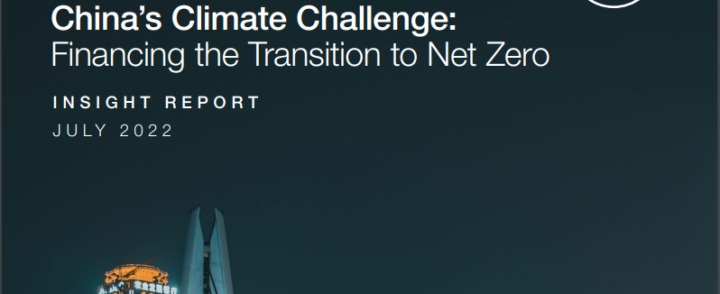China’s Climate Challenge: Financing the Transition to Net Zero
China holds a critical and outsized role in helping the global community achieve the targets of the Paris Agreement and preserving the planet’s biosphere. At the same time, China’s available financing mechanisms and its financial system remain somewhat distinct. A nuanced understanding of prioritized net-zero technologies and potential pathways to financing these technologies in Greater China is therefore critical to ensure the country can achieve its net-zero ambitions. The World Economic Forum in partnership with Oliver Wyman have published a report engaging stakeholders from the mobility, construction, real estate & steel industries as well as the financial services community on the need to create new financing models that support the transition to net zero in China.
China holds a critical and outsized role in helping the global community achieve the targets of the Paris Agreement and preserving the planet’s biosphere. At the same time, China’s available financing mechanisms and its financial system remain somewhat distinct. A nuanced understanding of prioritized net-zero technologies and potential pathways to financing these technologies in Greater China is therefore critical to ensure the country can achieve its net-zero ambitions. The World Economic Forum in partnership with Oliver Wyman have published a report engaging stakeholders from the mobility, construction, real estate & steel industries as well as the financial services community on the need to create new financing models that support the transition to net zero in China.
This report identifies three areas where change will be needed to make these transition possible:
1. Finance innovation, particularly in finding ways in which lending packages can be structured to meet the needs of long-term borrowers facing higher costs and/or lower margins.
2. Cross- sector Collaboration, particularly between different players within an industry that can create incentives for companies to produce or use sustainable products and inputs.
3. Policy support, particularly in the areas of standards and the use of tax incentives to discourage unwanted behaviour, such as through the imposition of carbon taxes, and encourage desirable practices, such as tax breaks on green products and services.
Source: WEF



